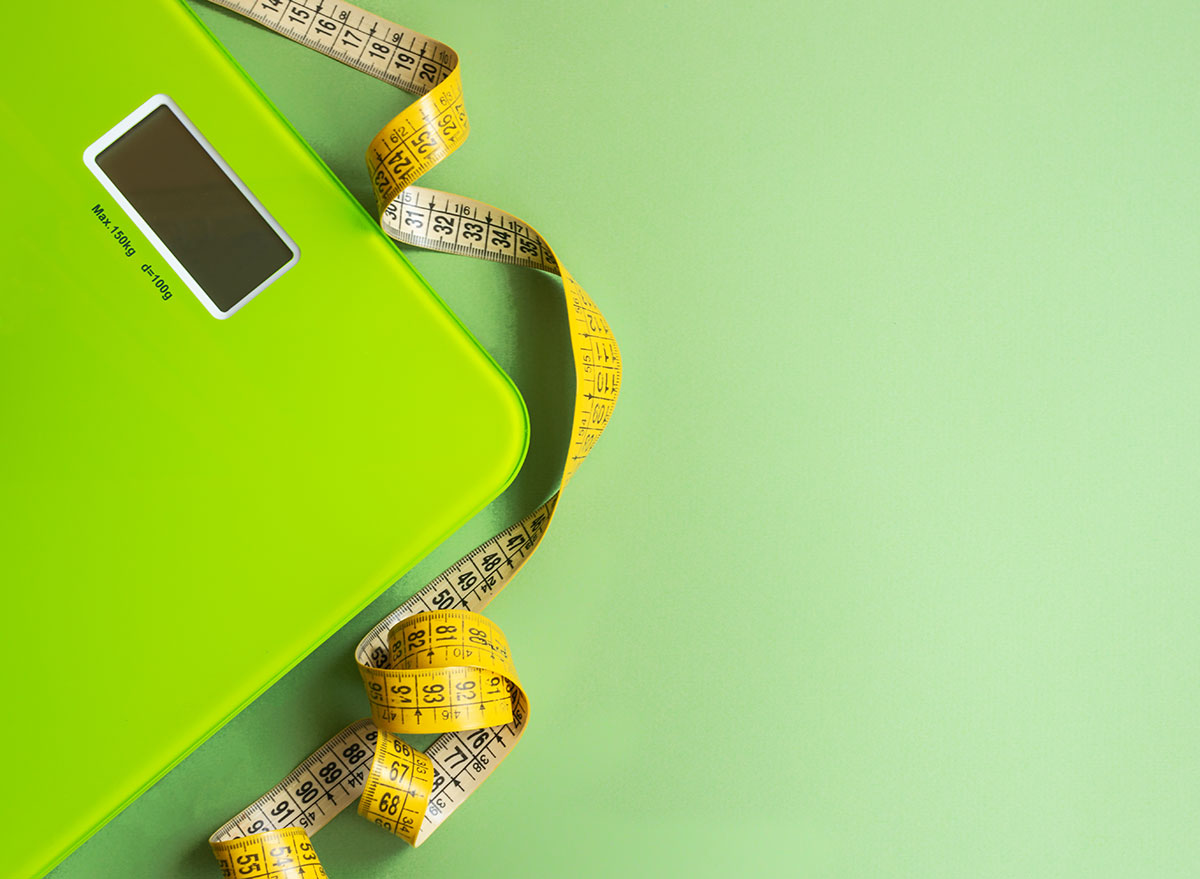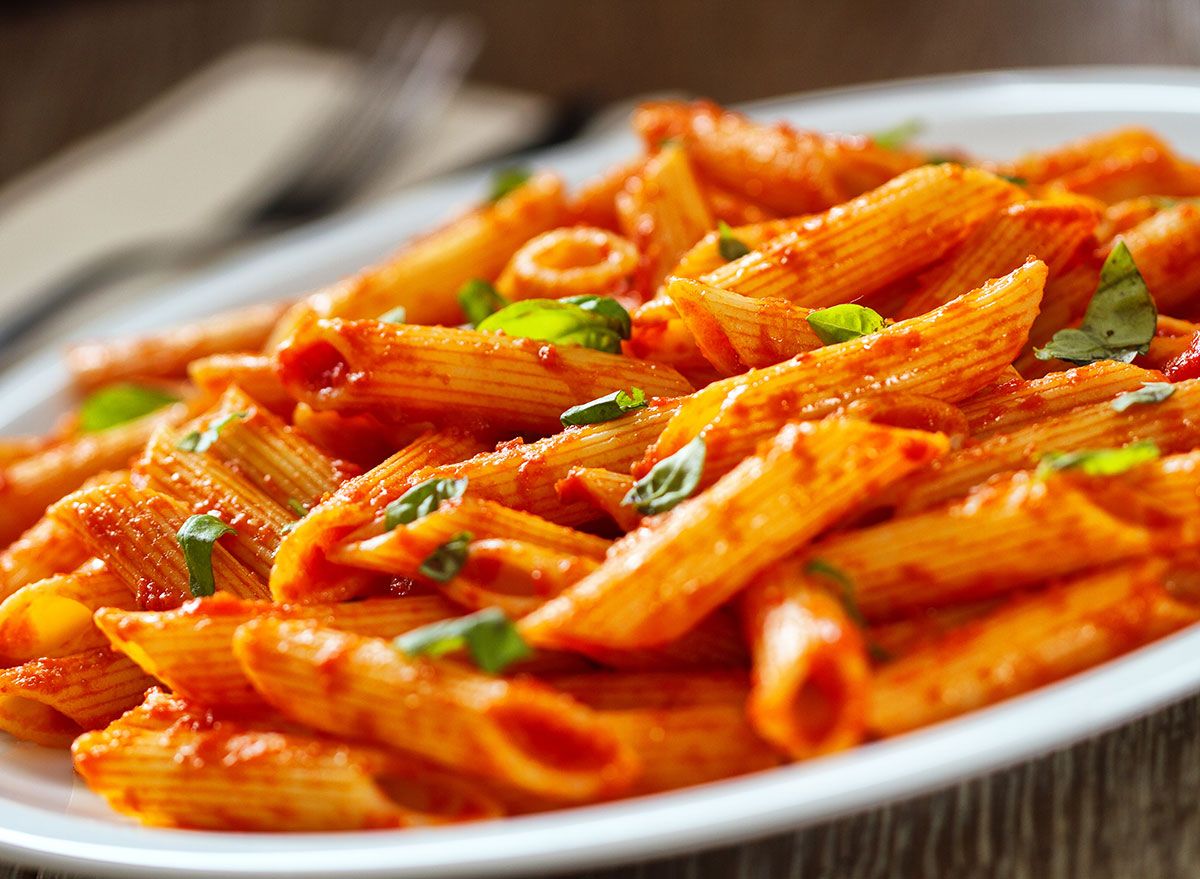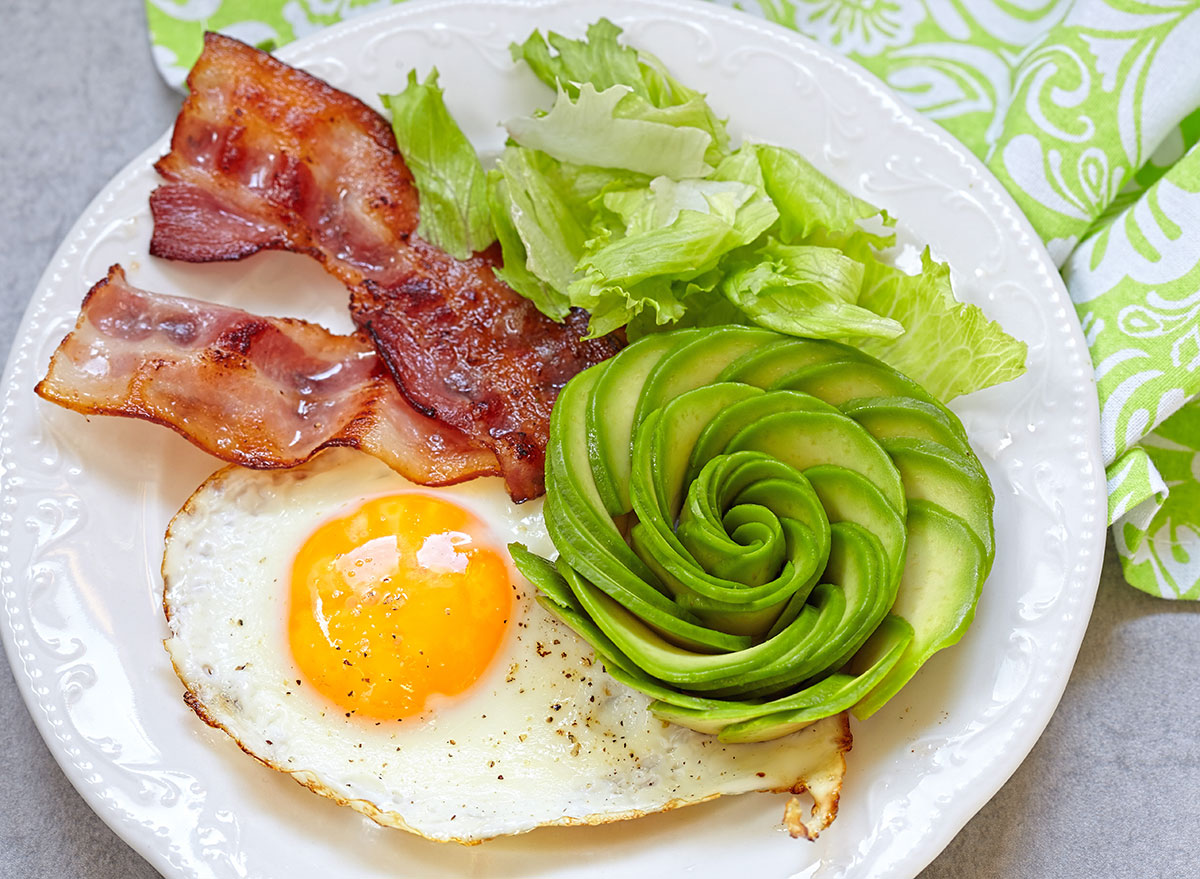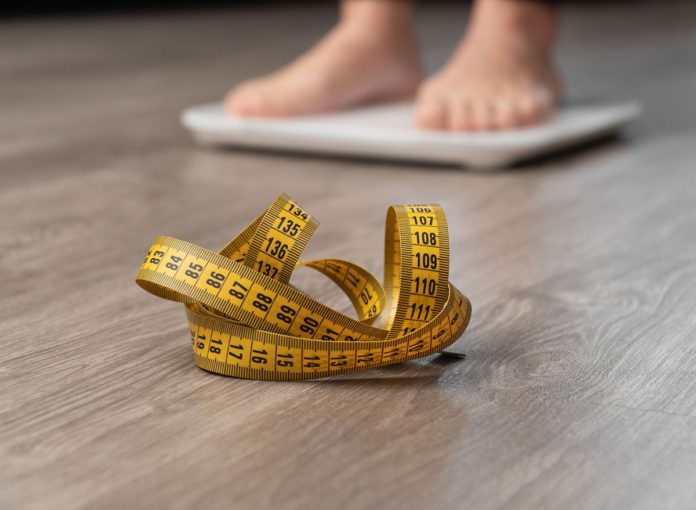No one’s weight loss journey is perfect. You’ll almost certainly experience some setbacks and even weight loss plateaus. Unless you come armed with the right knowledge, those setbacks are more likely to knock you completely off track than they are to be a mild inconvenience. Don’t worry—we’re here to help you avoid that from happening!
Whether you’re thinking about losing weight, you’re already 20 pounds toward your goal, or you’re finally on the cusp of losing those final 5 pounds, there are some critical tips you need to be aware of to set yourself up for success. To put together this list of weight loss mistakes that are holding you back from reaching your body’s full fat-burning potential, we looked at the science and talked to experts. Remember them—then learn how to overcome them with these 21 Healthy Eating Habits That Help You Lose Weight.
If you’ve recently shed a ton of weight, you should absolutely celebrate your success—with a tall glass of water. Just kidding! Go ahead and treat yourself. You deserve it. However, if your celebrations involve many consecutive happy hours or big portions of your favorite fat- and sugar-laden chocolate cakes, odds are, you’ll see the weight creep back onto you before you know it.
Remind yourself of this sobering stat before you open a bottle of wine: Alcohol can decrease your body’s fat-burning ability by up to 73%! Here’s a smarter way to celebrate: Reward yourself with something you can’t put in your mouth. Leah Kaufman, MS, RD, CDN, a New York City-based registered dietitian, suggests making a concerted effort to not use food as a reward. “I suggest using things like manicures and SoulCycle classes as a reward for all the hard work,” she says. When you eat junk food during times of emotional eating, it “will only lead to unhealthy yo-yo dieting.”
Looking for more? Sign up for our newsletter to get the latest food news delivered straight to your inbox.

The most important concept to keep in mind after you’ve lost significant pounds is “metabolic adaptation.” During weight loss, your body’s metabolism naturally slows down calorie burn on a daily basis to hang on to fat. In addition, your levels of leptin, the hunger hormone that tells your body when you’re full, actually drop after weight loss, so you may feel hungry.
The key to avoiding going back to eating the same number of calories you did before you lost weight is to double down on your awareness of calorie content and the size of meals. Do this by keeping a daily food diary for at least a week after you’ve reached your weight-loss goal. Studies show that being more mindful of what you eat—and how many calories it contains—will help you make healthier food choices and reduce snacking on calorie-dense processed foods.

Most people who’ve reached their goal weight stop stepping on the scale. That’s a mistake. While keeping an eye on the scale is The #1 Thing You Can Do Every Day to Lose Weight, it’s also an incredibly important factor in keeping that weight off.
Though the number on the scale isn’t the only way to judge your continued success, research shows that those who don’t partake in the ritual tend to pack on more weight than those who don’t. Why? The scale keeps you mindful of your diet, and it will quickly tip you off to weight regain.
That being said, there’s no need to be a slave to your scale. Checking in once a week should do the trick. And here’s a tip: Since weight naturally fluctuates throughout the week, researchers say that Wednesday weigh-ins are the most accurate.

Eating enough protein can keep your muscle from breaking down, but not getting enough can slow your metabolic rate. That’s because simply maintaining muscle mass will help your body burn calories faster. That way, your body will then turn to torching unwanted fat. Without muscle, you’ll be more susceptible to unwanted weight gain. How much protein do you need to eat per day to lose weight? Protein intake differs by the individual. However, for many people, consuming 0.8 to 1 gram of protein per kilogram of body weight per day should be enough to help you lose weight.

While following a zero- to low-carb diet like keto can help you shed pounds when you first start, these all-or-nothing type diets are hard to maintain long-term—and they can ultimately set you up for weight regain.
Completely slashing your carbohydrate intake will leave you with some not-so-pleasant side effects that can make it hard to go about your daily routine. Your body will start to exhibit signs of exhaustion, irritability, and lethargy—all of which have also been connected with overeating. “Carbs play an important role [in our daily lives], as our brain and central nervous system require them continuously to work properly,” trainer and registered dietitian Tim McComsey, RD says. Restricting carbs completely may cause any newly added, fat-burning muscle mass to be metabolized for energy rather than carbs.

If you haven’t switched up your workout routine recently, your body’s main calorie-torching mechanism may have idled down to slow burn. Wake up your metabolic rate by shocking your muscles, suggests Dr. Sean M. Wells, personal trainer and owner of Wells Physical Therapy. “If you’ve been doing the same workout for the past few months, your body isn’t being challenged anymore, meaning it’s not burning as many calories as it otherwise could,” he explains. If you normally ride a bike for exercise, try running or tennis to give your metabolism a kick.

Inadequate sleep can slow your metabolism and pile on the pounds. In one study, researchers analyzed more than 500 participants’ weekday sleep diaries and found that losing a mere 30 minutes of shut-eye increased their risk of obesity by 17%! Even mild sleep deprivation causes ghrelin—the hunger-stimulating hormone—to go into overdrive while simultaneously reducing levels of leptin—the hormone that suppresses appetite. In turn, this stimulates hunger even when you’re full, which can lead to overeating and weight gain. Solve your problems by understanding these 17 Reasons You’re Overeating (And How to Stop!)


























